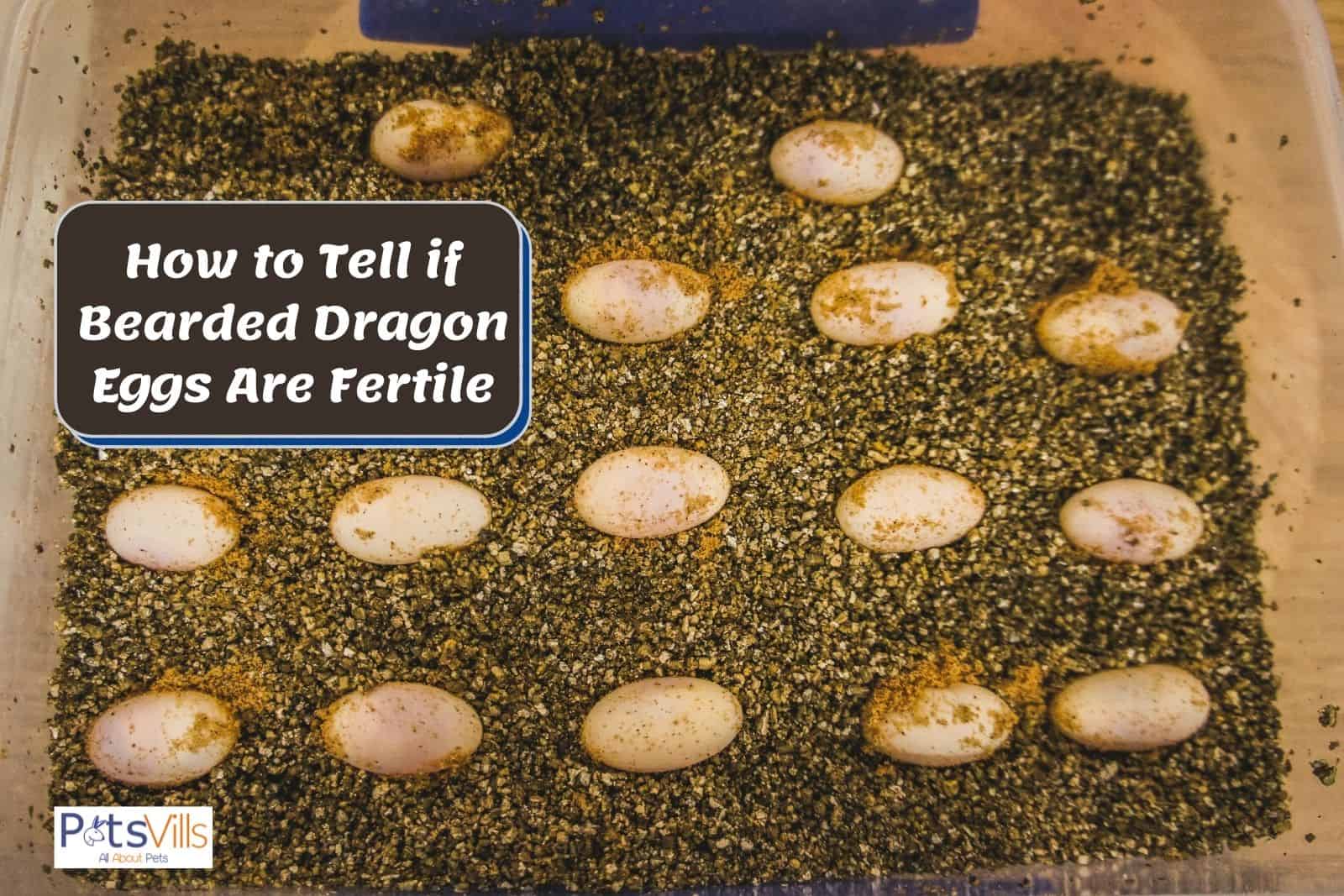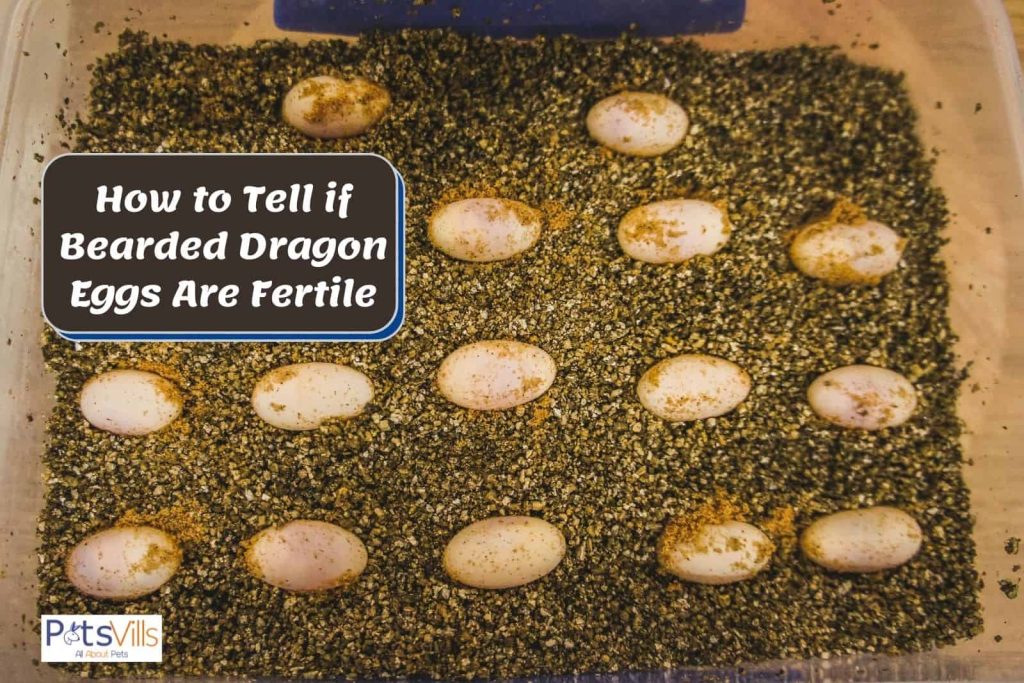Are you a bearded dragon owner looking to breed your scaly pets? If so, it’s important to know how to tell if your bearded dragon eggs are dead or alive. While it can be disheartening to find out that your eggs are no longer viable, early detection can help you take the necessary steps to save the remaining eggs.
Knowing how to spot a dead egg can be tricky, but there are a few telltale signs to look out for. In this article, we’ll cover the common symptoms of dead eggs and offer some helpful tips on how to care for viable eggs. So, if you’re ready to learn how to tell if your bearded dragon eggs are dead, let’s get started!
If you suspect that your bearded dragon eggs might be dead, there are a few things you can do to check. Here are the steps to follow:
- Check the color of the eggs: Live bearded dragon eggs are usually cream or white in color. If the eggs are discolored or have turned yellow or brown, they might be dead.
- Examine the eggs: Hold the egg gently and shine a bright flashlight on it. If you see a dark spot inside the egg, it means the embryo is developing. If the egg is completely translucent, it might be dead.
- Smell the eggs: If the egg has a foul smell, it’s likely dead.
By following these steps, you can determine if your bearded dragon eggs are dead or alive.

How to Tell if Bearded Dragon Eggs Are Dead?
Bearded dragons are fascinating creatures that have become popular pets due to their docile nature and unique appearance. If you own a female bearded dragon, you may be interested in breeding her to produce adorable baby dragons. However, before you can welcome the new additions to your family, you must ensure that their eggs are healthy and viable. This article will guide you on how to tell if bearded dragon eggs are dead.
1. Appearance
The first sign that your bearded dragon eggs may be dead is their appearance. Healthy eggs are white, plump, and have a firm texture. If the eggs appear yellow, shriveled, and soft, they may be dead. Dead eggs may also have a dimpled or collapsed appearance.
To confirm if the eggs are dead, gently tap them with your finger. If they emit a hollow sound, it is likely that the embryo has died.
If you suspect that your bearded dragon eggs are dead, you should remove them from the incubator immediately to prevent the growth of harmful bacteria.
2. Lack of Development
Another way to tell if your bearded dragon eggs are dead is by examining the development stage of the embryo. The embryo should be visible through the eggshell after a few days of incubation. If there is no visible development after a week, it is possible that the embryo has died.
You can also use a flashlight to examine the egg. Shine the light through the egg and look for veins or movement. If there is no visible sign of development, it is likely that the egg is dead.
3. Foul Smell
A foul odor emanating from the incubator is a strong indication that your bearded dragon eggs are dead. Dead eggs release a putrid smell due to the decay of the embryo inside.
If you notice a foul smell, remove the eggs from the incubator immediately and dispose of them properly. The smell can attract harmful bacteria that can infect the healthy eggs.
4. No Response to Candling
Candling is a process of shining a bright light through the egg to check the development stage of the embryo. If you have tried candling your bearded dragon eggs and noticed no response, then it is possible that they are dead.
Healthy eggs will show signs of development, such as veins and movement, when candled. Dead eggs will appear dark and show no signs of life.
5. Lack of Incubation Response
Bearded dragon eggs require specific temperature and humidity levels for successful incubation. If you have followed the recommended incubation conditions and noticed no response, then it is possible that the eggs are dead.
Dead eggs will not respond to the incubation conditions and will remain unchanged.
6. Egg Binding
Egg binding is a condition that affects female bearded dragons. It occurs when the female is unable to lay her eggs due to various reasons, such as dehydration or egg size.
If your female bearded dragon is egg-bound, the eggs may die inside her, leading to serious health complications. Signs of egg binding include lethargy, loss of appetite, and difficulty in movement.
You should seek veterinary assistance if you suspect that your bearded dragon is egg-bound.
7. Benefits of Identifying Dead Bearded Dragon Eggs
Identifying dead bearded dragon eggs is essential for the health of the remaining eggs and the mother. Dead eggs can attract harmful bacteria that can infect the healthy eggs and the mother.
Removing dead eggs also ensures that the incubator maintains the recommended temperature and humidity levels for successful incubation.
8. Dead Eggs Vs. Infertile Eggs
It is important to note that not all non-viable eggs are dead. Some eggs may be infertile, meaning that they were not fertilized by the male bearded dragon.
Infertile eggs will not show any signs of development and will remain unchanged throughout the incubation period. However, they will not emit a foul smell or attract harmful bacteria.
9. How to Prevent Dead Bearded Dragon Eggs
Preventing dead bearded dragon eggs involves ensuring that the female bearded dragon is healthy and well-fed before breeding. You should also provide the necessary incubation conditions, such as temperature and humidity levels.
Regular candling of the eggs will also help you identify any potential problems early and take corrective action.
10. Conclusion
Identifying dead bearded dragon eggs is essential for successful breeding and the health of the mother and the remaining eggs. You can tell if the eggs are dead by examining their appearance, lack of development, foul smell, lack of response to candling, and lack of incubation response.
Preventing dead bearded dragon eggs involves ensuring that the female bearded dragon is healthy, providing the necessary incubation conditions, and regular candling of the eggs.
By following these guidelines, you can ensure that your bearded dragon breeding program is successful and rewarding.
Frequently Asked Questions
How to Tell if Bearded Dragon Eggs Are Dead?
Bearded dragon eggs can take anywhere from 55 to 75 days to hatch. During this time, it is important to monitor the eggs to ensure that they are developing properly. The best way to tell if a bearded dragon egg is dead is by candling it. Hold the egg up to a bright light source and look for any veins or movement inside the egg. If the egg appears dark and there is no sign of life, it is likely that the egg is dead.
Another way to tell if a bearded dragon egg is dead is by its smell. If the egg has a foul odor, it could be a sign of bacterial infection or death. In this case, it is best to remove the egg from the incubator and dispose of it properly.
How to Care for Bearded Dragon Eggs?
Proper care of bearded dragon eggs is crucial for a successful hatch. The eggs should be incubated at a temperature between 82 and 86 degrees Fahrenheit. It is important to maintain a consistent temperature throughout the incubation process. The eggs should also be kept in a humid environment, with a relative humidity of around 70%.
Turning the eggs regularly can help prevent the embryo from sticking to the inside of the shell. It is recommended to turn the eggs at least three times a day. Avoid handling the eggs too much, as this can damage the delicate shell. Finally, be sure to monitor the eggs closely and remove any that are showing signs of bacterial infection or death.
My Bearded Dragon Is Dying!! (Part 44) 😰🦎#shorts
In conclusion, knowing whether your bearded dragon eggs are dead or alive is crucial to ensure the survival of your reptilian pets. By following the steps outlined in this article, you can easily determine the viability of your bearded dragon eggs and take appropriate action to ensure the health and safety of your pets.
Remember to always handle your bearded dragon eggs with care and caution. Avoid touching them excessively or shaking them, as this can damage the developing embryos inside. Instead, use a gentle touch and a keen eye to check for signs of life.
If you suspect that your bearded dragon eggs are dead, it is important to act quickly. Removing dead eggs from the incubator can prevent the spread of harmful bacteria and improve the overall health of your remaining eggs.
Overall, by staying vigilant and informed, you can ensure the successful hatching of your bearded dragon eggs and the continued health and happiness of your beloved pets.


